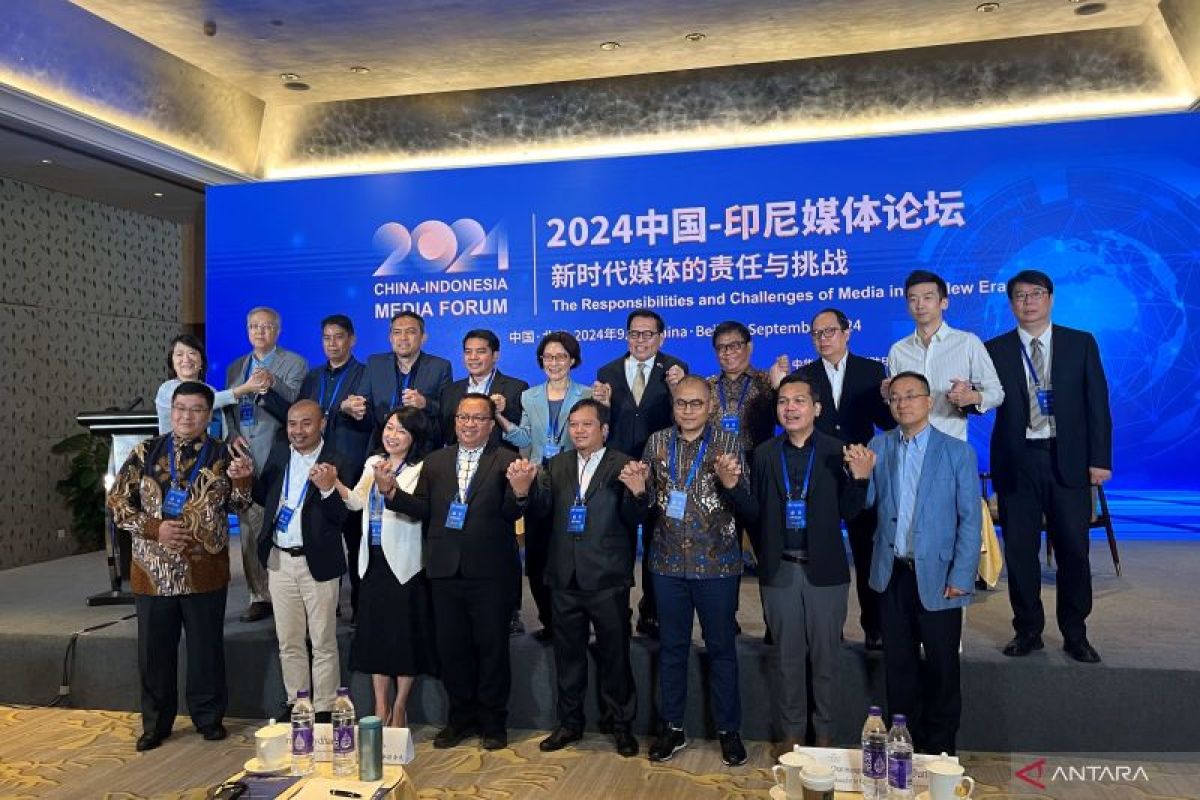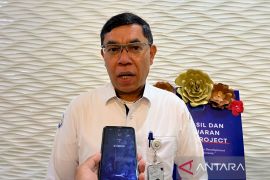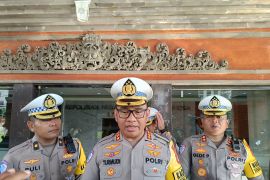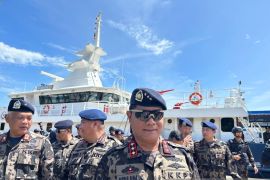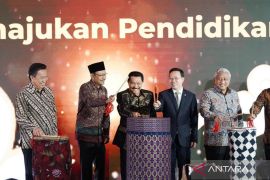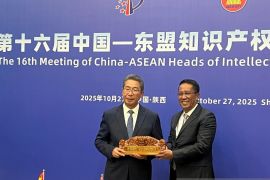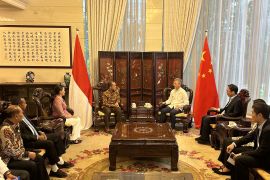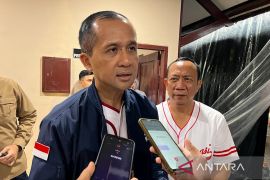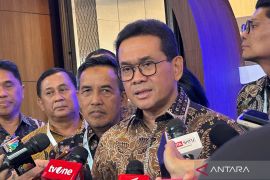Cooperation in the trade and investment sectors as well as in social and cultural exchanges is becoming increasingly promising, benefiting both countries in their national development efforts.
One major sector that will further strengthen Indonesia-China relations is the mass media, a key player in information dissemination and public education, where people from both countries can learn from each other.
As a result, media from the two nations convened for the second China-Indonesia Media Forum in early September, following the success of its inaugural edition last November in Jakarta. The forum’s current theme focuses on the opportunities, responsibilities, and challenges facing the media in the current era.
The forum, held in Beijing, China’s capital, was attended by nine editors-in-chief from Indonesian media outlets, including ANTARA News Agency, Kompas Daily, Kumparan, Republika, RCTI, Net TV, Merdeka.com, Katadata, and The Jakarta Post.
Meanwhile, the People’s Daily, Xinhuanet, and the China Media Group (CMG) represented Chinese media at the forum.
Strengthening mutual understanding
According to Tong Xiaoling, Vice President of the China Public Diplomacy Association, such a forum is essential for the benefit of both countries, strengthening bilateral cooperation and fostering an understanding of mutual goals for national development.
“As major forces of the Global South, unity and cooperation between China and Indonesia boost global development, world peace, and stability and are important drivers in realizing world multipolarity,” she explained.
She also expressed her belief that collaboration between mass media from the two countries would elevate Indonesia-China cooperation to a higher level.
Meanwhile, ANTARA News Agency’s News Director, Irfan Junaidi, stated that Indonesia-China media cooperation will strengthen mutual understanding between the people of both countries, particularly in clarifying misconceptions about China to the Indonesian public.
“We must admit that even now, not all Indonesians have a positive perception of China,” he remarked.
He revealed that ANTARA's coverage of China mostly focuses on social and cultural development, as well as the country's foreign policy and international actions.
ANTARA has also been engaged in long-standing cooperation with China’s Xinhua News Agency to exchange news and disseminate reports about their respective countries, he noted.
The news director further explained that reports on technological developments in China are among the most popular with Indonesian readers, particularly those following ANTARA. This indicates that advancements made by Chinese innovators are highly attractive to Indonesians.
However, Editor-in-Chief of Kompas Daily, Sutta Dharmasaputra, pointed out that despite China being a major source of foreign investment in Indonesia, public acceptance of Chinese investments has not been overwhelmingly positive.
He cited a recent survey conducted by Kompas’ research agency, which showed that only 46.4 percent of Indonesians “approved” of Chinese investments in Indonesia, while 53.6 percent did not.
This is in contrast to data from the Investment Ministry, which indicated that Chinese investments in Indonesia in 2023 were recorded at US$7.4 billion—the second largest after Singapore’s US$15.4 billion in the same year.
By comparison, Indonesians’ acceptance of investments from Middle Eastern countries, such as Saudi Arabia and the United Arab Emirates, stood at 69.3 percent, despite their investments not ranking among the top five in 2023.
Reflecting on this issue, Dharmasaputra suggested better public communication strategies and stronger collaboration between Indonesian and Chinese media to improve the Indonesian public's perception of China.
Advancing cooperation
Meanwhile, Indonesian Ambassador to China and Mongolia, Djauhari Oratmangun, voiced his optimism that collaboration between Indonesian and Chinese media would positively impact and help strengthen bilateral relations.
“Understanding each other's culture and way of thinking will help strengthen the ‘third pillar’ of bilateral cooperation, which is social, cultural, and people-to-people relations,” Djauhari stated.
He affirmed that strengthening the foundation of the “third pillar” will bolster the “first pillar,” political and security cooperation, and the “second pillar,” economic cooperation.
Despite having completely different ecosystems, the media forum between Indonesia and China provides a valuable opportunity to discuss and seek solutions to common issues faced by the media of both nations, he remarked.
The ambassador highlighted that Chinese media has proven its resilience amid the ongoing digital disruption that threatens conventional media.
Hence, Djauhari encouraged Indonesian and Chinese media to enhance collaboration in news and journalistic content production, including by mutually inviting journalists to disseminate positive aspects about each other's countries.
He also emphasized that sound relations between both nations would facilitate the decision-making process for national stakeholders to advance bilateral cooperation in political, security, economic, and development affairs.
The mass media has bridged the two nations by disseminating positive reports about their respective countries, fostering mutual understanding.
Indonesian and Chinese media should continue to collaborate to achieve common goals on bilateral, regional, and global stages.
Related news: Media shows Indonesia’s peaceful image during Pope’s visit: govt
Related news: Media urged to empower people with disabilities in reporting
Editor: Anton Santoso
Copyright © ANTARA 2024
